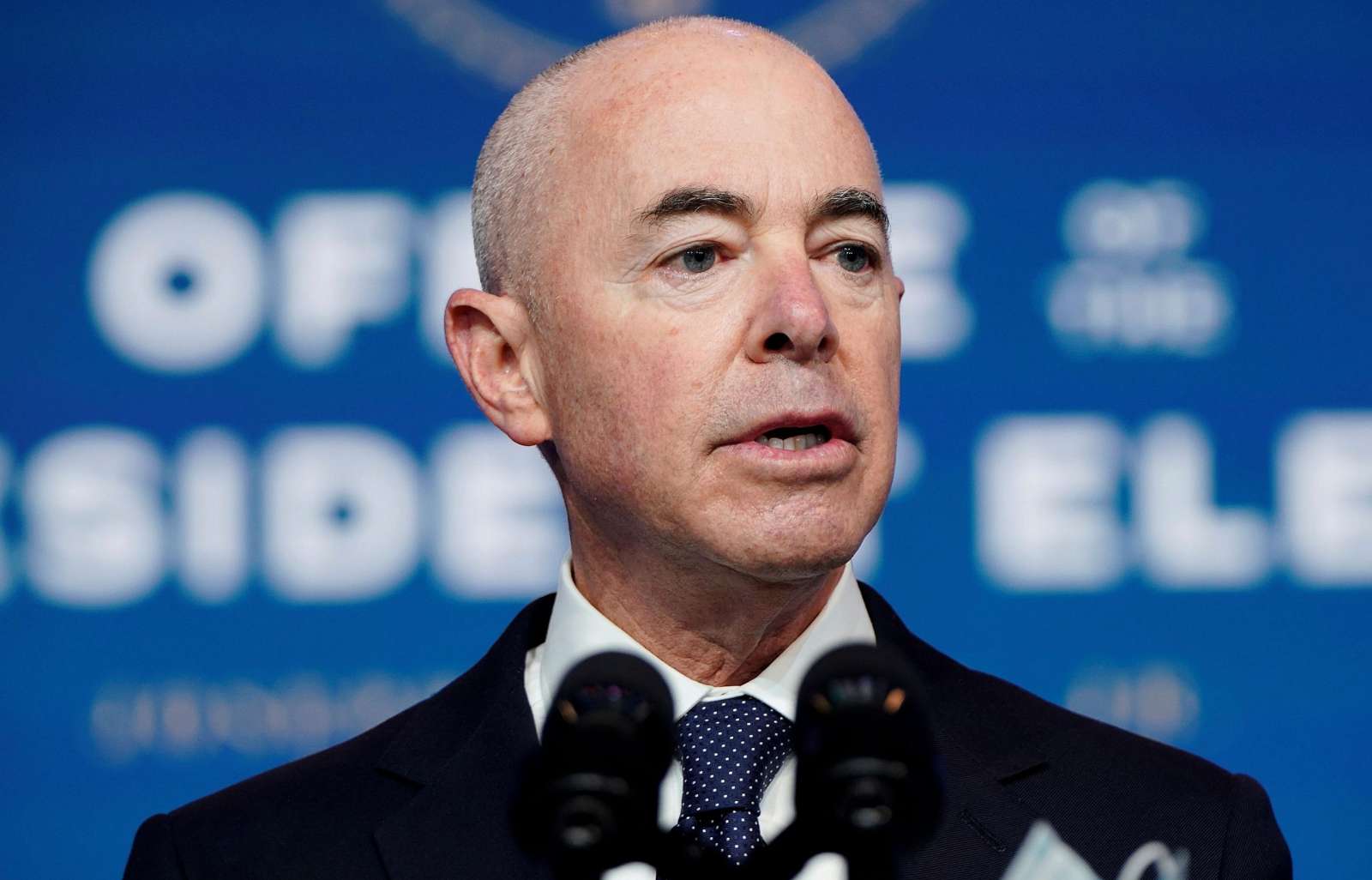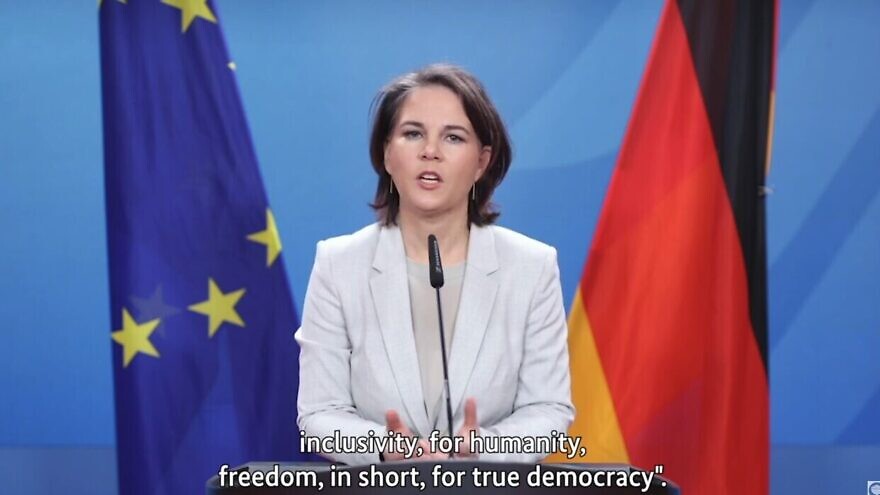The annual International Holocaust Remembrance Day is set for Thursday—a day the world acknowledges the massive attempt by Nazi Germany to exterminate European Jewry in the middle of the 20th century. But, as the Jewish man in charge of security on America’s soil said on Monday, “We know that remembrance is every day, as is the work that must accompany it.”
U.S. Secretary of Homeland Security Alejandro Mayorkas was among the heavyweights who addressed B’nai B’rith International’s yearly Holocaust remembrance event on Jan. 24, in conjunction with the U.N.’s Holocaust Remembrance Day. The global Jewish service organization held a virtual session titled “Holocaust Remembrance: Responsibilities for All Society,” which included a keynote address by new German Foreign Minister Annalena Baerbock, who spoke to an international Jewish audience for the first time in her new role.
Mayorkas, whose mother’s family escaped World War II and the Holocaust from Romania, shared memories of his family’s story. He spoke of the broader foundational principles that define anti-Semitism and various forms of hate, and the existential threat that bigotry presents.
“An attack born of hate against one minority is an attack against all,” said Mayorkas, himself a Cuban refugee.
“We were present at the founding of the U.N. in San Francisco. In 1960, we were the first Jewish organization to open a U.N. affairs office. B’nai B’rith is accredited at the U.N., and when it declared it would have an annual Holocaust Remembrance Day, we inaugurated the event,” Dan Mariaschin, CEO of B’nai B’rith International, told JNS, stressing the organization’s leading role in coordinating Jewish communal engagement with the United Nations.
“This year, because of COVID, we weren’t able to go back into the U.N. building. But with Zoom, you can bring in people from all over the world and have a longer program,” he noted.
Monday’s event featured a pair of panel discussions, including one focused on government action across the world. Among the participants were Canadian Special Envoy on Preserving Holocaust Remembrance and Combating Antisemitism Irwin Cotler; U.S. Special Envoy for Holocaust Issues Ellen Germain; Organization of American States Commissioner to Monitor and Combat Anti-Semitism Fernando Lottenberg; and European Commission Coordinator on Combating Antisemitism and Fostering Jewish Life Katharina von Schnurbein.
“Anti-Semitism is toxic to democracies. Holocaust distortion is toxic to democracies. We need a global constituency of conscience to combat it,” said Cotler.
Mariaschin told JNS that Monday’s event marked the first time that the OAS anti-Semitism envoy participated.

‘Protect our societies from any attempt to rewrite history’
The second panel focused on best practices from other fields and featured International Holocaust Remembrance Alliance (IHRA) secretary general Kathrin Meyer; Daniel Lörcher, head of corporate responsibility of German professional sports club Borussia Dortmund; Tracey Petersen, manager of the United Nations and the Holocaust Outreach Programme; Auschwitz Institute for the Prevention of Genocide executive director Tibi Galis; and Sharaka USA CEO Omar Al Busaidy.
Lörcher’s participation was particularly notable, representing the popular Borussia soccer team, which participates at the highest level in Germany.
“Fighting anti-Semitism comes from various places and different disciplines. It runs the gamut. We have seen anti-Semitism rear its head in soccer in places like the Netherlands and in England with different chants by spectators,” Mariaschin told JNS, noting that participation in the effort to fight anti-Semitism was needed outside the traditional NGO and Jewish nonprofit environment.
European Commission vice president Margaritis Schinas also appeared, pointing out that unchallenged Holocaust distortion “nourishes anti-Semitism.”
He said that “we need to protect our societies from any attempt to rewrite history, and support open and independent research on all aspects of the Holocaust. At the same time, we must step up our efforts to fight anti-Semitism in all its forms, using the definition of IHRA as our starting point.”
IHRA has adopted widely recognized working definitions of both anti-Semitism and Holocaust denial. A historic Israeli-led resolution fighting Holocaust denial, which passed the U.N. General Assembly by consensus last week, included a provision using the IHRA description of Holocaust distortion and outright denial.
“Holocaust distortion desensitizes people to anti-Semitic acts, and it’s a disgrace toward the victims and the survivors. To remember the Holocaust is a responsibility of humankind,” said Meyer.
Dani Dayan, chairman of Yad Vashem, the World Holocaust Remembrance Center in Jerusalem, appeared at the conclusion of the event.
“I leave this program encouraged. It’s clear we have an effective, committed worldwide community of Shoah remembrance,” said Dayan, using the Hebrew word for the Holocaust. He stressed the importance of Yad Vashem’s ongoing mission of documenting and researching the Holocaust. “Documentation is ultimately the testimony of the Six Million,” he said.
The U.N.’s Holocaust Remembrance Day activities continue on Tuesday night, as U.N. Secretary-General António Guterres virtually addresses New York’s Park East Synagogue’s Holocaust Commemoration Service.
The official U.N. Holocaust Memorial Ceremony takes place on Thursday morning, with seminars and concert events also planned for this week.


























